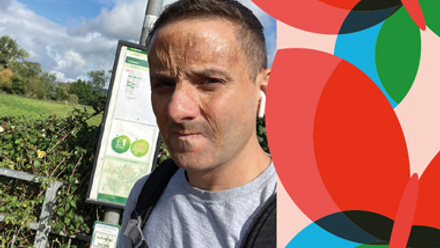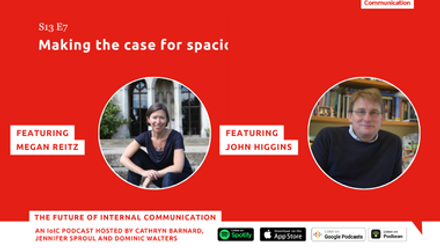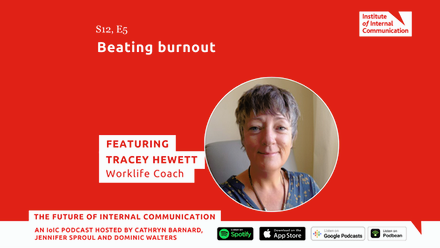Then it just stopped working. The years of stress, huge pressure I'd put on myself and punishing internal monologue made my brain break. That was the only way I could describe it at the time. It felt like a switch had flicked in my brain and it just didn't work any more.
Years of high stress had turned into anxiety and depression and things needed to change.
And change things I did. I took time off (a few weeks the first time round, three months the second - darker - time), changed my working hours, introduced one day a week working from home, learned how to manage differently, delegate effectively and give my team more responsibility.
These things did make a difference, but I felt like managing my mental health and thriving in my Head of Comms role just weren't compatible.
So, I took redundancy at the start of this year and set off on a new course as a workplace mental health specialist. I'm using my lived experience to help organisations understand, talk about and tackle mental health in the workplace.
Everyone is different, I'm not saying that stress always leads to more severe mental health issues, but it's not sustainable long term and as the IoIC's campaign quite rightly highlights - we all matter at work. You're not just a worker bee, doing your best for the hive. You are your organisation's biggest asset.
Internal Comms is often a high stress, high volume industry. You're the first port of call in a crisis; you're in on the organisational secrets before anyone else; you're often working with some of the most senior people in the organisation; you're the face of the brand internally.
In our industry, it's easy to just plough on and think 'I just really need a proper lunch break,' 'I'll be fine after the weekend,' 'once this big project is over, it will all go back to being manageable.' But that might not be the best thing for you - or your team.
So, this April, stop. Think about how you're feeling, are you struggling to sleep, to focus, to prioritise? Have you noticed a colleague showing signs they might be stressed or overwhelmed? These are all subtle signs of stress that are easy to ignore in our busy lives.
Awareness months, days, weeks are great for helping you think about an issue. But it's just the first step. To really make an impact, you need to take action. So I've put together this free stress worksheet to help you do this and start to tackle these symptoms in yourself or in your team, as well as some tips on how to run an exercise around stress in your team.
By noticing and starting to reduce your signs of stress, you'll gain focus, time and hopefully happiness.






